3,240 won for a meal, paid by the "alone meal" company card, and "guilty of malpractice in business."
이미지 확대 보기

YTN Radio (FM 94.5) [YTN News FM Wise Radio Life]
□ Broadcast Date: November 8, 2024 (Fri)
□ Host: Announcer Park Gui-bin
□ Castor: Kim Hyo-shin, Labor Minister
* The text below may differ from the actual broadcast content, so please check the broadcast for more accurate information.
□ Broadcast Date: November 8, 2024 (Fri)
□ Host: Announcer Park Gui-bin
□ Castor: Kim Hyo-shin, Labor Minister
* The text below may differ from the actual broadcast content, so please check the broadcast for more accurate information.
◆ Announcer Park Gui-bin (hereinafter referred to as Park Gui-bin): It's time to be with labor attorney Kim Hyo-shin of the Labor Law Aldonno Pine Labor Law Office, which makes money to know. Last year, the unpaid wage was KRW 1.7 trillion. This year, the first half of the year alone is said to reach 1.436 trillion won. In that year, it is predicted that the scale may exceed 2 trillion won. That's how bad the recession is. In order to overcome this financial difficulty, there are cases in which employees are forced to come out only when they have work, and in some companies, when they paid for meals with a corporate card, they were found guilty of malpractice. Let's talk about these things with labor attorney Kim Hyo-shin today. I'll see you via video. Hello, labor attorney. As I told you before, there is a place where the company is having a hard time, so it should come out only when you have work.
◇ Kim Hyo-shin, a labor attorney (hereinafter referred to as Kim Hyo-shin): It's getting a lot these days. I don't know about general office workers or anything like that, but this is especially true for some of our wholesale and retail workers who just work in logistics like this. So, the workload needs to be logistics or something, but if it doesn't come in or if there's a lot of stock, it's only when there's work to come out.
◆Park Gui-bin: Then does that change to an hourly wage system rather than a salary system?
◇ Kim Hyo-shin: That's right. It could be changed to an hourly wage or a daily wage. The salary system is calculated based on the five-day week system, but if we don't, we're deducting it by no work, no wage, so it's actually changing to a daily wage system.
◆Park Gui-bin: Then if you decide to do so because the company is difficult and the management is difficult, you have to follow it from the perspective of a working person.
◇Kim Hyo-shin: To tell you about this law first, there is no agreement between the parties on the change of working conditions, and we have made it impossible for them to change it unilaterally. According to Article 17 of the Labor Standards Act, working days and holidays are clearly specified and issued in the contract, and even if they are changed, they are also issued the same. That's why the company can't implement it unilaterally.
◆Park Gui-bin: I see. So what happens if the worker refuses?
◇ Kim Hyo-shin: Actually, it's a problem from here. That's why I told you not to come out, but it's actually very difficult to go out and be around. Then in the end, it's not like we have to accept it as it is. You accept some of the company's demands, but if you don't come out, you can compensate for some of the wage reductions. This is the vacation allowance set by the law. The vacation allowance is only applied to workplaces with 5 or more workers.E is now required to pay 70% of this average wage if the business operator fails to provide work due to reasons attributable to him. From a business owner's point of view, there may be some complaints about giving him/her an allowance when he/she doesn't even work, but the law stipulates a suspension allowance that requires 70% of the average wage to be paid if the business is closed due to reasons attributable to the business owner.
◆Park Gui-bin: So, from the perspective of workers, it's better to know that if the company tells them to come out only when they have work, they can get this vacation allowance, but they said it's a case of business closure due to reasons attributable to the employer. So, what can we say about the reasons attributable to companies?
◇Kim Hyo-shin: Since it's attributable to the business owner, the business owner says, "I want to do well in sales, but can I suddenly blame the economy for the recession and see this as a reason attributable to me?" There have been accumulated cases of precedents to the extent that we see it as a reason attributable to this reason. For example, if business is closed due to a recession, poor product sales due to a lack of raw materials, poor product sales due to a decrease in orders, machine damage, and a parent company's financial difficulties are broadly attributable to users. But if I tell you what it's like not to watch it, we've been through COVID-19 before. So, when this government quarantines due to COVID-19 infection, you don't have to pay the closure allowance at that time.
◆Park Gui Bin: From the company's point of view?
◇ Kim Hyo-shin: Yes, that's right. From the company's point of view, the main source of raw materials was completely lost. So we need this feedstock to run our company, but the feedstock was completely blocked from him. There are cases in which it is said to have been lost, but if it is blocked or the entire factory is flooded, it is considered that it is not possible to do business, so it is not necessary to pay a business suspension allowance.
◆Park Gui-bin: Except for these cases, if a company is responsible for reasons attributable to employers, the law stipulates that workers should be paid a vacation allowance if they are forced to take a break when they are unable to work, and that more than 70% of their average wages are paid.
◇ Kim Hyo-shin: Yes, that's right.
◆Park Gui-bin: Actually, don't come out when you're tired at work. This story is about how hard it is because of management, but I think it would be too much to pay for school closures. What should I do in this case? From the company's point of view?
◇Kim Hyo-shin: I think there are now two legal ways and one way we can resolve it with a labor-management trust relationship. Anyway, as you said earlier, the company is very difficult, so it may be a little too much to give 70% of this when it is closed. First of all, it will be important to provide information on the management status to our workers and obtain consent for unpaid leave for a certain period of time. Then I think you can move on wisely. And the second is a system called the suspension subsidy. So, in the case of a business closure like this, if you submit a business closure plan first and pay the employees a business closure allowance, you can receive about 67% of the business closure allowance as a subsidy, so it will be a little more helpful. Then, if you really don't have funds and you don't get the consent of the workers, if it's impossible to improve the business, you can get approval from the Labor Relations Commission and pay a vacation allowance of less than 70% of the average wage. So you can also use the legal system like that.
◆Park Gui-bin: What happens if workers have to use annual leave if they have annual leave or something before this shutdown?
◇Kim Hyo-shin: This is also possible. It's true that we have to use various methods to break through management. So the first thing everyone does in most workplaces is to use annual leave. You can't just let them use it unilaterally, and you can burn out your annual leave through an annual replacement agreement with our workers' representatives. So the alternative to annual leave is that we take that day off by a written agreement with the representative of the worker on the day we are obliged to work. You may ask why we suddenly force them to use their annual leave when we want to use it, but the law's agreement to replace annual leave applies in common with the written agreement of the representative earlier, so that won't apply here. And then there are people who are very powerful. There are people who say they will just go and do their jobs because I didn't agree, but if the company refuses to receive labor when you go to work, your annual leave will be exhausted, so you have to do this wisely.
◆Park Gui-bin: It means that if there is a written agreement between the representative of the worker and the company's employer, it is possible regardless of individual circumstances.
◇ Kim Hyo-shin: Yes, that's right. So, the purpose is to overcome the management difficulties, so I think we need to understand each other.
◆Park Gwibin: I see. And I'll point out one more thing. Earlier, at the beginning of this time, there was a brief talk, such as eating with a corporate card or filling up on the way home from work on the weekend, which is a crime of breach of duty. Was there a verdict like this?
◇ Kim Hyo-shin: Yes, that's right. Now, the crime of breach of duty is divided into cases where the people who handle the affairs of others, that is, the employees, have benefited from property due to actions that violate their duties. I think this person just ate privately with this corporate card and then pumped some other gas money. The amount was about 2.8 million won for two years. In the first trial, he said he had no intention of illegal gain, and he used it once. Considering that an average of 3,240 won was spent on meals by deciding to eat one out of three meals a day, it cannot be evaluated that this should be criminally punished. The company has not raised an objection in three years, so this person was found not guilty in the first trial because there was a legitimate reason why this user recognized that the approved worker would be approved by this user. In the second trial, a fine of 1.5 million won was imposed. Given this reason, it is natural to use the corporate card for public work, not to use it only for commuting, so it is natural that the company that failed to detect it on time and processed the expenses approved the use of the corporate card, so of course, this is a crime of breach of duty.
◆Park Gui-bin: But the first and second trials were different. You were acquitted in the first trial and said you had no objections in three years at the company. Then the company must have filed a complaint again later.
◇ Kim Hyo-shin: That's right. I just made this appeal. Since the first trial revealed innocence, the company filed a complaint for breach of duty and appealed to the second trial because it was innocent of the first trial. In fact, this case was triggered by this worker's reporting to our CEO for workplace harassment, etc., and this legal dispute continued between the two parties. So, I saw that our workers are getting back on that. That's why I moved to the corporate credit card.
◆Park Gui-bin: I see. I see. Then, since this corporate card came out and the ruling was made that the ruling constitutes a breach of trust in business, I think we should look at the use of the corporate card. Do you have any precautions?
◇ Kim Hyo-shin: That's right. In fact, there are many cases where the corporate card is customarily given the discretion of those who have it. This is normally fine, but as the case is now, the emotional confrontation between these parties has grown out of control. In fact, it is true that the use of the corporate card is implicitly recognized, but to put it the other way around, so if the company says it legally wants to do something, it can't help but get caught.
◆Park Gui Bin: Really?
◇Kim Hyo-shin: Now, we actually talk about this a lot. A lot of people are referred to disciplinary committees, and because of this, the company will target certain employees. Many people say that if you do something like this, you will fall down first by betting on corporate cards and other cost issues. Actually, there's only one way to do this. You don't use it privately when you use the corporate card. So, if you don't know that you used it without knowing because you have many cards, you have to report it to the company right away and take some action.
◆Park Gui-bin: Is it usually a corporate credit card? Each corporation has different characteristics, and is the purpose of using the corporate card different for each company? Or is it basically similar in general?
◇Kim Hyo-shin: There is one thing that the purpose of using corporate credit cards is almost all in common. You have to use it for the company.
◆Park Gui-bin: Are you saying that if I use it for the company, I can use it at my discretion now?
◇ Kim Hyo-shin: That's right. Now, we've decided in detail on what cases we should use it for the company.
◆Park Gui-bin: The standard of "for the company" may be a little ambiguous in a way. On both sides?
◇ Kim Hyo-shin: That's right. Now, in the case of salespeople, a lot of cards are used for entertainment expenses for this business, but if you don't set it in detail, you might bump into it again, and it's necessary to set a specific regulation on the use of this corporate card. But most workplaces set the purpose and limit amount like this.
◆Park Gui Bin: That's right. The purpose and limit amount are set, and basically, the premise is that the money spent to work for the company is fine. So I had a meeting with the buyer. Of course, you can use the corporate credit card. Everyone thinks, but on top of that, you have to go back to work. I have some work to do, but
I drank too much coffee and bought a cup of coffee with the company card. Is it okay?
◇ Kim Hyo-shin: You can't. Buying coffee when you go to work is a little more personal. The company also has a pantry, so the company also has coffee.
◆Park Gui-bin: Then I took a taxi on the way in. It's so hard that I can't even pay for a taxi.
◇Kim Hyo-shin: There are some businesses that allow it. There are companies that allow taxis to use public transportation when they go to work and when they return home. But you can't say that you're looking at this too hard. I'm coming back, but I have to hurry up and come back. Then it's natural to take a taxi.
◆Park Gui Bin: That's right. I had to work so hard that I ate three meals and five meals. What should I do?
◇Kim Hyo-shin: Stop, stop. Because I can't answer this. Let's stop.
◆Park Gwibin: I see. Everyone, the corporate credit card is only for the money you spend to work for the company. You should not use it publicly or privately. You can keep that. Use outside of work purposes should be careful. It was with Aldonno Kim Yu-shin, a labor attorney. Thank you.
◇Kim Hyo-shin: Thank you.
◇ Kim Hyo-shin, a labor attorney (hereinafter referred to as Kim Hyo-shin): It's getting a lot these days. I don't know about general office workers or anything like that, but this is especially true for some of our wholesale and retail workers who just work in logistics like this. So, the workload needs to be logistics or something, but if it doesn't come in or if there's a lot of stock, it's only when there's work to come out.
◆Park Gui-bin: Then does that change to an hourly wage system rather than a salary system?
◇ Kim Hyo-shin: That's right. It could be changed to an hourly wage or a daily wage. The salary system is calculated based on the five-day week system, but if we don't, we're deducting it by no work, no wage, so it's actually changing to a daily wage system.
◆Park Gui-bin: Then if you decide to do so because the company is difficult and the management is difficult, you have to follow it from the perspective of a working person.
◇Kim Hyo-shin: To tell you about this law first, there is no agreement between the parties on the change of working conditions, and we have made it impossible for them to change it unilaterally. According to Article 17 of the Labor Standards Act, working days and holidays are clearly specified and issued in the contract, and even if they are changed, they are also issued the same. That's why the company can't implement it unilaterally.
◆Park Gui-bin: I see. So what happens if the worker refuses?
◇ Kim Hyo-shin: Actually, it's a problem from here. That's why I told you not to come out, but it's actually very difficult to go out and be around. Then in the end, it's not like we have to accept it as it is. You accept some of the company's demands, but if you don't come out, you can compensate for some of the wage reductions. This is the vacation allowance set by the law. The vacation allowance is only applied to workplaces with 5 or more workers.E is now required to pay 70% of this average wage if the business operator fails to provide work due to reasons attributable to him. From a business owner's point of view, there may be some complaints about giving him/her an allowance when he/she doesn't even work, but the law stipulates a suspension allowance that requires 70% of the average wage to be paid if the business is closed due to reasons attributable to the business owner.
◆Park Gui-bin: So, from the perspective of workers, it's better to know that if the company tells them to come out only when they have work, they can get this vacation allowance, but they said it's a case of business closure due to reasons attributable to the employer. So, what can we say about the reasons attributable to companies?
◇Kim Hyo-shin: Since it's attributable to the business owner, the business owner says, "I want to do well in sales, but can I suddenly blame the economy for the recession and see this as a reason attributable to me?" There have been accumulated cases of precedents to the extent that we see it as a reason attributable to this reason. For example, if business is closed due to a recession, poor product sales due to a lack of raw materials, poor product sales due to a decrease in orders, machine damage, and a parent company's financial difficulties are broadly attributable to users. But if I tell you what it's like not to watch it, we've been through COVID-19 before. So, when this government quarantines due to COVID-19 infection, you don't have to pay the closure allowance at that time.
◆Park Gui Bin: From the company's point of view?
◇ Kim Hyo-shin: Yes, that's right. From the company's point of view, the main source of raw materials was completely lost. So we need this feedstock to run our company, but the feedstock was completely blocked from him. There are cases in which it is said to have been lost, but if it is blocked or the entire factory is flooded, it is considered that it is not possible to do business, so it is not necessary to pay a business suspension allowance.
◆Park Gui-bin: Except for these cases, if a company is responsible for reasons attributable to employers, the law stipulates that workers should be paid a vacation allowance if they are forced to take a break when they are unable to work, and that more than 70% of their average wages are paid.
◇ Kim Hyo-shin: Yes, that's right.
◆Park Gui-bin: Actually, don't come out when you're tired at work. This story is about how hard it is because of management, but I think it would be too much to pay for school closures. What should I do in this case? From the company's point of view?
◇Kim Hyo-shin: I think there are now two legal ways and one way we can resolve it with a labor-management trust relationship. Anyway, as you said earlier, the company is very difficult, so it may be a little too much to give 70% of this when it is closed. First of all, it will be important to provide information on the management status to our workers and obtain consent for unpaid leave for a certain period of time. Then I think you can move on wisely. And the second is a system called the suspension subsidy. So, in the case of a business closure like this, if you submit a business closure plan first and pay the employees a business closure allowance, you can receive about 67% of the business closure allowance as a subsidy, so it will be a little more helpful. Then, if you really don't have funds and you don't get the consent of the workers, if it's impossible to improve the business, you can get approval from the Labor Relations Commission and pay a vacation allowance of less than 70% of the average wage. So you can also use the legal system like that.
◆Park Gui-bin: What happens if workers have to use annual leave if they have annual leave or something before this shutdown?
◇Kim Hyo-shin: This is also possible. It's true that we have to use various methods to break through management. So the first thing everyone does in most workplaces is to use annual leave. You can't just let them use it unilaterally, and you can burn out your annual leave through an annual replacement agreement with our workers' representatives. So the alternative to annual leave is that we take that day off by a written agreement with the representative of the worker on the day we are obliged to work. You may ask why we suddenly force them to use their annual leave when we want to use it, but the law's agreement to replace annual leave applies in common with the written agreement of the representative earlier, so that won't apply here. And then there are people who are very powerful. There are people who say they will just go and do their jobs because I didn't agree, but if the company refuses to receive labor when you go to work, your annual leave will be exhausted, so you have to do this wisely.
◆Park Gui-bin: It means that if there is a written agreement between the representative of the worker and the company's employer, it is possible regardless of individual circumstances.
◇ Kim Hyo-shin: Yes, that's right. So, the purpose is to overcome the management difficulties, so I think we need to understand each other.
◆Park Gwibin: I see. And I'll point out one more thing. Earlier, at the beginning of this time, there was a brief talk, such as eating with a corporate card or filling up on the way home from work on the weekend, which is a crime of breach of duty. Was there a verdict like this?
◇ Kim Hyo-shin: Yes, that's right. Now, the crime of breach of duty is divided into cases where the people who handle the affairs of others, that is, the employees, have benefited from property due to actions that violate their duties. I think this person just ate privately with this corporate card and then pumped some other gas money. The amount was about 2.8 million won for two years. In the first trial, he said he had no intention of illegal gain, and he used it once. Considering that an average of 3,240 won was spent on meals by deciding to eat one out of three meals a day, it cannot be evaluated that this should be criminally punished. The company has not raised an objection in three years, so this person was found not guilty in the first trial because there was a legitimate reason why this user recognized that the approved worker would be approved by this user. In the second trial, a fine of 1.5 million won was imposed. Given this reason, it is natural to use the corporate card for public work, not to use it only for commuting, so it is natural that the company that failed to detect it on time and processed the expenses approved the use of the corporate card, so of course, this is a crime of breach of duty.
◆Park Gui-bin: But the first and second trials were different. You were acquitted in the first trial and said you had no objections in three years at the company. Then the company must have filed a complaint again later.
◇ Kim Hyo-shin: That's right. I just made this appeal. Since the first trial revealed innocence, the company filed a complaint for breach of duty and appealed to the second trial because it was innocent of the first trial. In fact, this case was triggered by this worker's reporting to our CEO for workplace harassment, etc., and this legal dispute continued between the two parties. So, I saw that our workers are getting back on that. That's why I moved to the corporate credit card.
◆Park Gui-bin: I see. I see. Then, since this corporate card came out and the ruling was made that the ruling constitutes a breach of trust in business, I think we should look at the use of the corporate card. Do you have any precautions?
◇ Kim Hyo-shin: That's right. In fact, there are many cases where the corporate card is customarily given the discretion of those who have it. This is normally fine, but as the case is now, the emotional confrontation between these parties has grown out of control. In fact, it is true that the use of the corporate card is implicitly recognized, but to put it the other way around, so if the company says it legally wants to do something, it can't help but get caught.
◆Park Gui Bin: Really?
◇Kim Hyo-shin: Now, we actually talk about this a lot. A lot of people are referred to disciplinary committees, and because of this, the company will target certain employees. Many people say that if you do something like this, you will fall down first by betting on corporate cards and other cost issues. Actually, there's only one way to do this. You don't use it privately when you use the corporate card. So, if you don't know that you used it without knowing because you have many cards, you have to report it to the company right away and take some action.
◆Park Gui-bin: Is it usually a corporate credit card? Each corporation has different characteristics, and is the purpose of using the corporate card different for each company? Or is it basically similar in general?
◇Kim Hyo-shin: There is one thing that the purpose of using corporate credit cards is almost all in common. You have to use it for the company.
◆Park Gui-bin: Are you saying that if I use it for the company, I can use it at my discretion now?
◇ Kim Hyo-shin: That's right. Now, we've decided in detail on what cases we should use it for the company.
◆Park Gui-bin: The standard of "for the company" may be a little ambiguous in a way. On both sides?
◇ Kim Hyo-shin: That's right. Now, in the case of salespeople, a lot of cards are used for entertainment expenses for this business, but if you don't set it in detail, you might bump into it again, and it's necessary to set a specific regulation on the use of this corporate card. But most workplaces set the purpose and limit amount like this.
◆Park Gui Bin: That's right. The purpose and limit amount are set, and basically, the premise is that the money spent to work for the company is fine. So I had a meeting with the buyer. Of course, you can use the corporate credit card. Everyone thinks, but on top of that, you have to go back to work. I have some work to do, but
I drank too much coffee and bought a cup of coffee with the company card. Is it okay?
◇ Kim Hyo-shin: You can't. Buying coffee when you go to work is a little more personal. The company also has a pantry, so the company also has coffee.
◆Park Gui-bin: Then I took a taxi on the way in. It's so hard that I can't even pay for a taxi.
◇Kim Hyo-shin: There are some businesses that allow it. There are companies that allow taxis to use public transportation when they go to work and when they return home. But you can't say that you're looking at this too hard. I'm coming back, but I have to hurry up and come back. Then it's natural to take a taxi.
◆Park Gui Bin: That's right. I had to work so hard that I ate three meals and five meals. What should I do?
◇Kim Hyo-shin: Stop, stop. Because I can't answer this. Let's stop.
◆Park Gwibin: I see. Everyone, the corporate credit card is only for the money you spend to work for the company. You should not use it publicly or privately. You can keep that. Use outside of work purposes should be careful. It was with Aldonno Kim Yu-shin, a labor attorney. Thank you.
◇Kim Hyo-shin: Thank you.
[Copyright holder (c) YTN Unauthorized reproduction, redistribution and use of AI data prohibited]
Editor's Recomended News
The Lastest News
-
Gangwon FC CEO Kim Byung-ji renewed his contract...full power delegation
-
재생
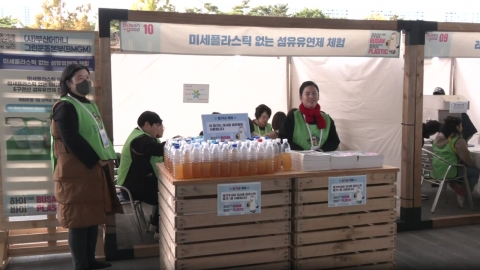 Plastic now 'Hello'... On the weekend, we experience resource circulation.
Plastic now 'Hello'... On the weekend, we experience resource circulation. -
재생
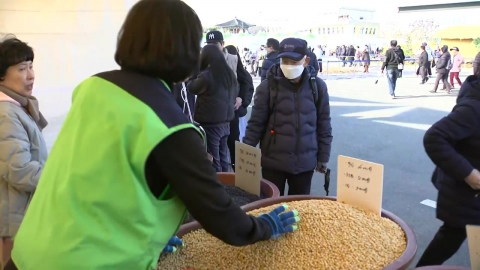 On the weekend, clear and cool...A unique event will be held in late autumn.
On the weekend, clear and cool...A unique event will be held in late autumn. -
재생
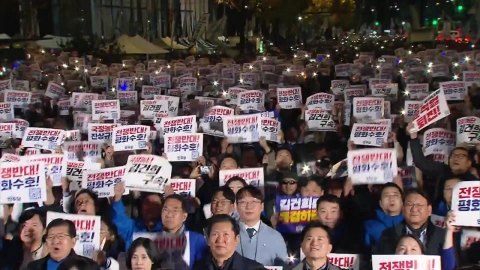 'Sentence D-2' Lee Jae-myung, 4th outdoor rally...Ruling party "Another intimidating demonstration"
'Sentence D-2' Lee Jae-myung, 4th outdoor rally...Ruling party "Another intimidating demonstration"
![[Reporting Y] "Light" is right in front of the exam.a massive cancellation of qualifications](http://image.ytn.co.kr/general/jpg/2024/1123/202411230506345528_h.jpg)
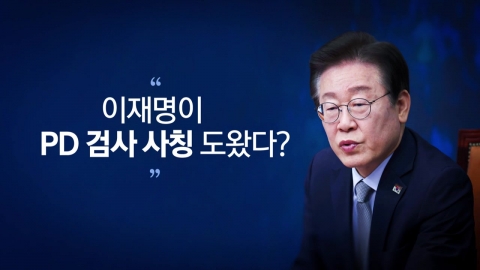
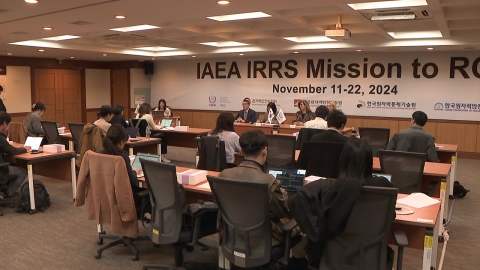
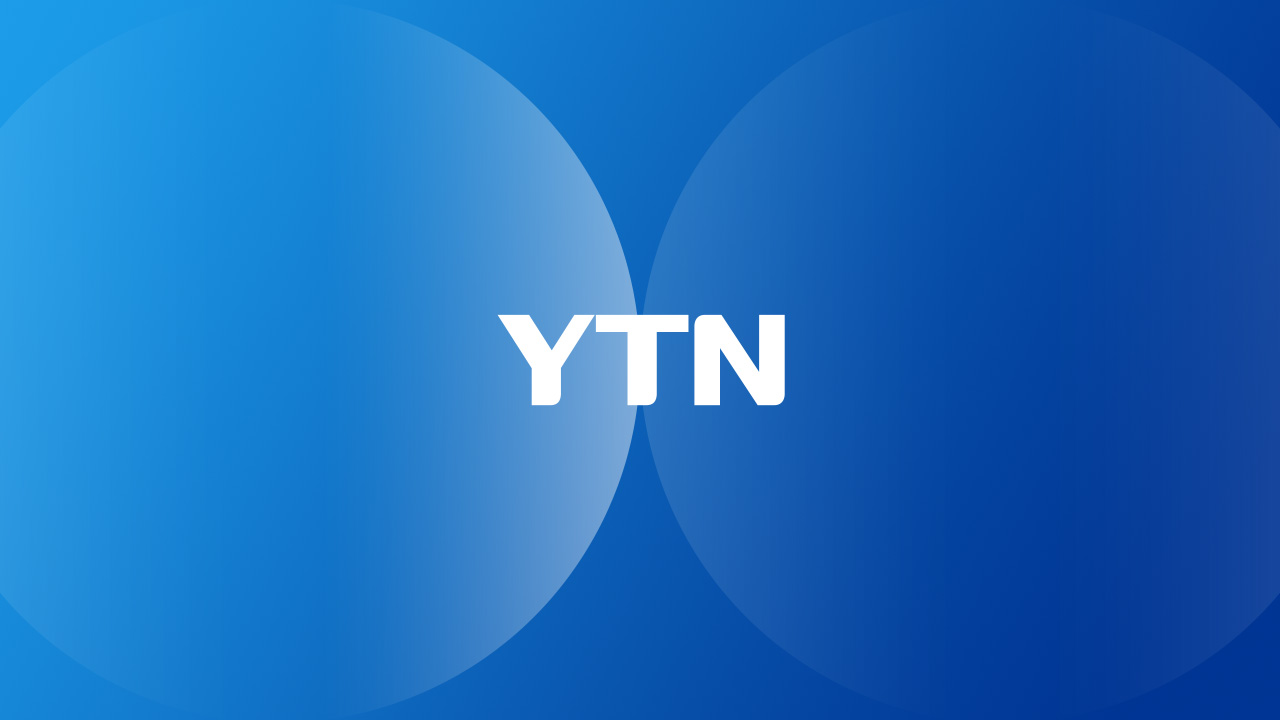
![[Yetterview]](https://image.ytn.co.kr/general/jpg/2024/1123/202411230900011387_h.jpg)
![[YTERVIEW]](https://image.ytn.co.kr/general/jpg/2024/1123/202411230800271881_h.jpg)



